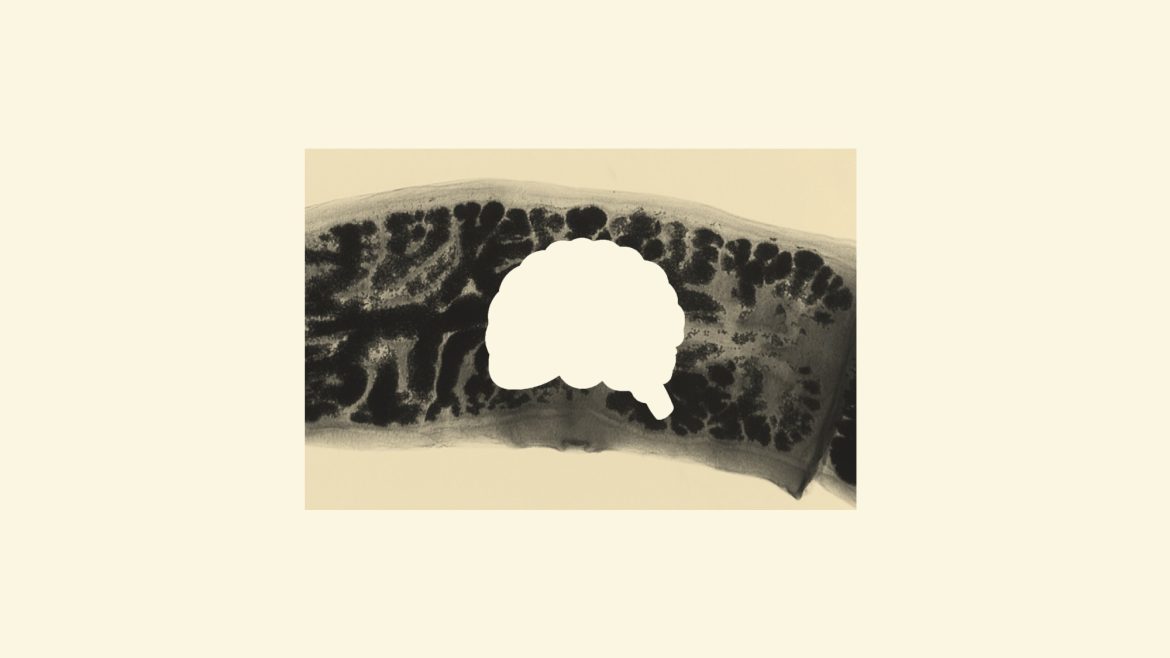Earlier today, The New York Times broke some startling news about a presidential candidate. According to a 2012 deposition, Robert F. Kennedy Jr. once suffered from, in his own words, “a worm that got into my brain and ate a portion of it and then died.” The vague yet alarming description could apply to any number of parasitic ailments, among them angiostrongyliasis, baylisascariasis, toxocariasis, strongyloidiasis, and trichinosis. But some experts immediately suspected a condition called neurocysticercosis (NCC), in which the larvae of the pork tapeworm Taenia solium post up in the brain.
The condition might sound terrifying—and, to some observers, darkly hilarious. Literal brain worms! But it does not actually involve any brain-munching, or even your standard-issue worm. The brain-invading culprit is instead a tapeworm (a kind of helminth) that typically makes its home in pigs. As far as parasitic infections go, this is “the most common one in the brain,” Laila Woc-Colburn, an infectious-disease physician at Emory University, told me. And globally, it’s one of the most common causes of epilepsy in adults.
NCC typically begins after people have been exposed to feces that contain the eggs of a pork tapeworm, say while on a pig farm or handling uncooked, contaminated food. After the eggs are swallowed, they hatch into larvae in the gut. Because people aren’t the appropriate host for the young tapeworms, they end up on a fruitless journey, meandering through the body in a desperate attempt to find pig muscle. A common final destination for the larvae is the brain, where they enclose themselves into cysts in the hopes of maturing; eventually, unable to complete their life cycle, they die, leaving behind little more than a calcified nub.
This is, to put it scientifically, some pretty gnarly stuff. But many cases are “completely asymptomatic,” Boghuma Kabisen Titanji, also an infectious-disease physician at Emory University, told me. In other people, though—especially those with a lot of larval cysts—the presence of the foreign invaders can spark a wave of inflammation, which in turn triggers swelling and tissue destruction. Individuals with cysts in their brain may develop headaches or seizures, though those problems can take years or even decades to manifest, Titanji said.
Experts estimate that millions of people may be afflicted with NCC worldwide, most of them concentrated in Latin America, sub-Saharan Africa, East Asia, and India. In the U.S., though, NCC is rather rare, with just a few thousand diagnoses made each year, many of them related to travel or immigration. “This is a disease of poverty,” Woc-Colburn told me. Which would make the multimillionaire Kennedy—if he had the infection at all—“an atypical patient.”
There is, at least, some comforting news. NCC is pretty easily preventable with solid hand-washing habits. And in the U.S., where CT scans are fairly accessible, “it can be diagnosed very easily,” Woc-Colburn said, particularly once doctors have a good sense of a patient’s exposure history. Doctors generally know to look for it in patients who come in with headaches and seizures. (Kennedy first sought help after experiencing memory loss and mental fogginess, though he recently told the Times that those symptoms have since resolved and that he hadn’t received treatment for the parasite.) The infection is also treatable with standard antiparasitics. And caught early, it isn’t expected to leave lingering damage. In more serious cases, though, years of severe, unmanaged seizures can lead to certain cognitive defects.
[Read: America’s never-ending battle against flesh-eating worms]
None of this is to say that Kennedy definitely had NCC. All the public knows is that, in 2010, he said that he was battling neurological symptoms, and that an unusual blemish appeared on a brain scan. (The memory loss and mental fogginess may very well have been attributable to mercury poisoning from Kennedy’s diet at the time, which was high in tuna and perch, according to the same 2012 deposition.) Even if a parasite was definitely to blame, “at least six or seven” others could have ended up in his brain, Titanji told me. Like the pork-tapeworm larvae, several of them would have ended up there accidentally, only to die a quick death without gulping down any brain tissue.
The most comforting news about NCC is that—again—it is uncommon in the United States. Still, now that this news has broken, Woc-Colburn worries that her clinic is going to fill up with people who think they’re afflicted. Given the odds, many of them will be wrong. If anyone’s really worried about their gray matter becoming lunch, they shouldn’t fear worms, but Naegleria fowleri, a rare amoeba that camps out in warm bodies of water. That one, I regret to report, really does eat your brain.

